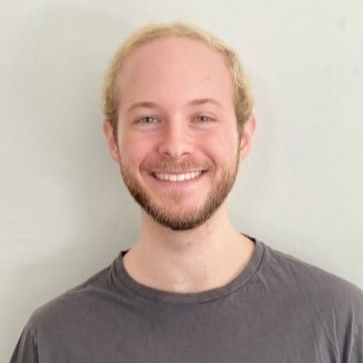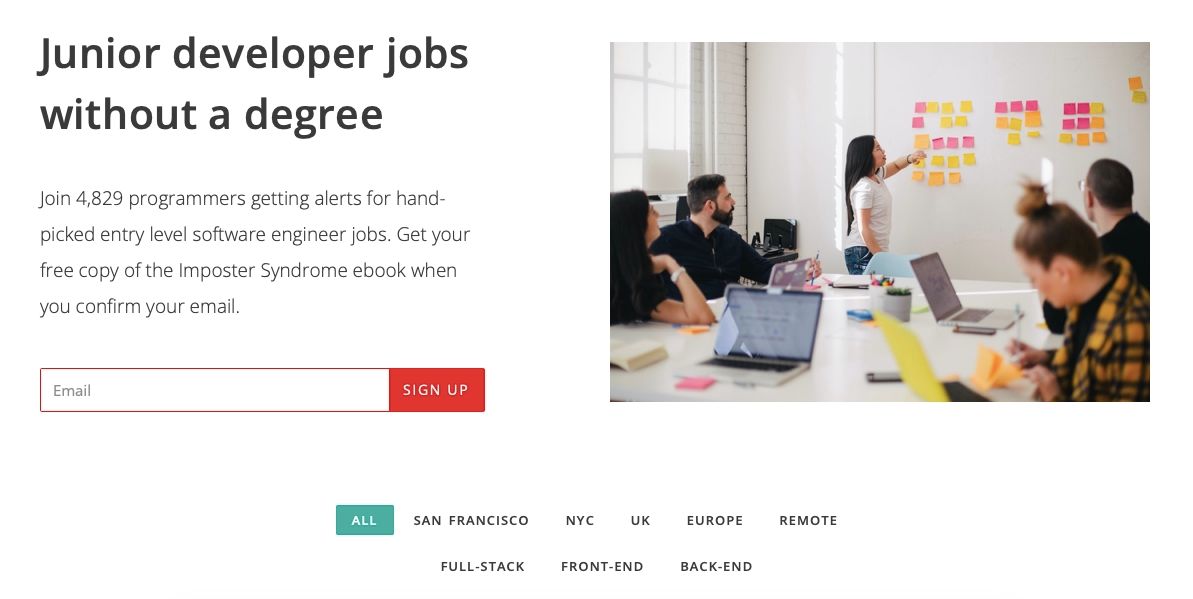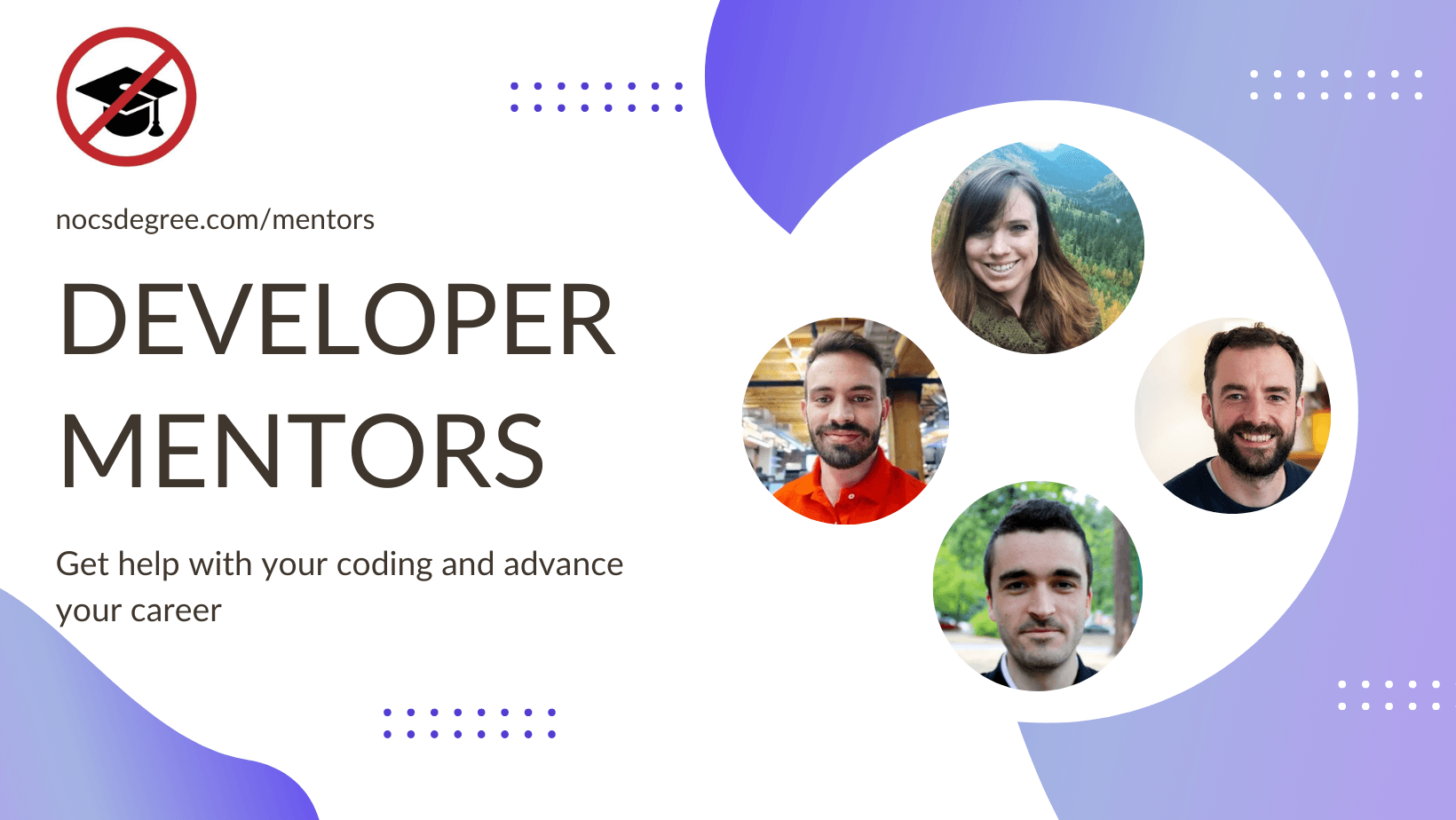Today's interview is with Dylan, who moved from a disappointing job in the music industry to Software Developer. Dylan was kind enough to give his tips on learning to code as a self-taught programmer, how he got his first developer job and what his job is actually like.
Hey, so can you introduce yourself?
Hey! My name is Dylan Yudis. I’m a Customer Success Engineer at a SaaS startup called Quantum Metric. I work fully remotely, along with the rest of my company. I currently live in Los Angeles. I originally moved to LA to pursue a career in the music industry but after a couple years, I realized it wasn’t for me so I decided to teach myself how to code using free and cheap online resources. With enough persistence and hard work, I believe that anyone can get a great engineering/dev job at an awesome tech company.

What does a typical day as a developer look like for you?
I work as a Customer Success Engineer which looks slightly different from the traditional software development role. Essentially, I’m a client-facing programmer. I write JavaScript code that tweaks the software our clients use, tailoring it to their specific business needs. I’m always reading off the DOM and traversing the architecture of many, many websites.
I also surf through stack overflow, read internal documentation, and really just technically translate business use cases for our clients. I meet with clients pretty much every day. The stakeholders tend to be Product Managers, Frontend Developers, and UX Designers.
I learn so much from them! We talk about patching bugs, tweaking Quantum’s software to solve use cases, and many more things. I also meet with my team internally throughout the day to touch base on in-flight and upcoming initiatives.
Why did you learn to code?
I started off my career in the music industry. I worked long, inflexible hours, the pay was peanuts - think minimum wage, toxic work environment, and very dry, soul-sucking work. And worst of all, I felt like I was compromising my own creativity by representing other people’s. Nothing too redeeming. Although I did get to see many free concerts and I met some really awesome people along the way.
With that being said, tech always appealed to me in that it tends to attract intellectual and open-minded people. Also, many companies in tech offer everything that the music industry seems to lack: flexible work schedules, good pay, great company culture, interesting/creative work… which was everything I wanted in a job. So I went all in and decided to teach myself how to code.
How did you learn coding?
Rather than a CS degree or bootcamp I decided on the self-taught route. I got a business degree from a four year university and I didn’t want to go into any more debt especially knowing that I could just teach myself using free/cheap online resources. I started out on Freecodecamp.org. I followed most of the web dev track on there and really made sure I grasped HTML & CSS.
From there, I switched over to Udemy where I took a few more courses (links below). From there, I eventually began freelancing to build up my skills and portfolio. Everything else thus far I’ve learned through jobs I’ve had and projects I’ve built.
https://www.udemy.com/course/design-and-develop-a-killer-website-with-html5-and-css3/
https://www.udemy.com/course/the-complete-javascript-course/
https://www.udemy.com/course/react-redux/
What would you have differently?
This isn’t as much about picking the right material to study, etc but it’s more so the process I put myself through to learn code. In hindsight, how I did it was unhealthy. I’m saying this because many people, especially online, make their journeys out to be sparkly and linear. For me, it was quite the opposite.
I had no plan B and that’s what motivated me. I figured that if I stayed persistent and positive, my hard work would pay off. Fortunately, it did. With that being said, there can be a lot of stress that comes along with the “all or nothing” approach. It can affect your relationships, your mental and physical well-being, and much more. I wish that I would have taken pressure off myself and trusted that it’d work out.
How has your life changed since learning to code?
I was making $16.50/hour in the music industry. Fortunately, I was able to quadruple my salary in two years which I feel like is relatively quick especially for going the self-taught route. With that being said, you can imagine the wave of elation that swept over me when I received my first real offer.
My mom was freaking out too. Haha! So, having much more financial freedom has been incredible. Also, most importantly, my experience validated my level of self-belief. The sheer will that it took to overcome so many confounding variables made everything so much sweeter. And that shine still hasn’t worn off.
It’s amazing how you can think things into existence. My mantra through my whole journey was, and still is, “persistence triumphs over talent” and it’s something that lives with me still everyday, which I think is priceless.
What was the interview process like for your first developer job?
First, a recruiter messaged me on LinkedIn - side note: make sure to update your LinkedIn monthly, if you can. You never know who’s in need of your skillset. Anyways, from that message, we set up an initial HR screening. The screening went well enough for them to send me a challenging take-home exam that assessed my knowledge of Vanilla JavaScript, CSS selectors, the DOM, cache & local storage, and general web principles.
After fortunately passing the take-home exam, a few days later, I did a live coding/behavioral interview with the hiring manager. A few days after that, I got a call to meet with the VP of the department. That was mostly a behavioral interview.
And a couple weeks later, for the final round… I talked with the CEO! One of the coolest things about Quantum’s interview process is that our CEO meets with every candidate before they receive an offer (the CEO giving the final thumbs up). 5 rounds total, spread out over about a month, One of the best interview processes I’ve had thus far, I must say.
Did you ever have imposter syndrome?
I have imposter syndrome almost everyday. I’m convinced that 99% of the industry does though, even the most senior of folks. I try to strike a healthy balance between realizing that I don’t know something but can still obtain a general idea and then figure it out from there…. and I think that’s what really matters.
Not necessarily your ability to crack algorithms from scratch. It’s your ability to break down a problem that you may not know, have the curiousity/confidence to research it, implement a solution, and then optimize, all driven by a “can-do” approach that I think is great for anyone in any career.
What are your career goals for the future?
The web is where it’s at for me. I’m actively working on becoming a subject matter expert in software and web engineering. So what that looks like is getting better at using web technologies like HTML, CSS, JS, DOM, APIs, and generally just maintaining a growth mindset.
I’m also building out my YouTube channel that I recently started! I just put out a video where I tell my full story from being broke working in the music industry to becoming a web developer. Also, here’s my Twitter if you’d like to connect on a more personal level :) I’m no stranger to sharing my “secrets”. Always down to help out.




